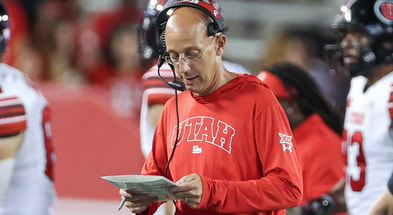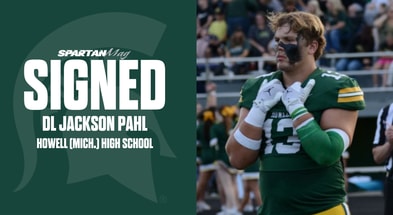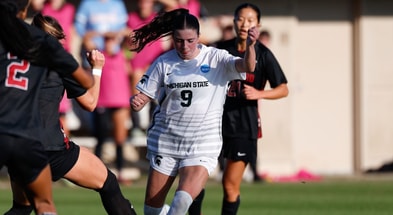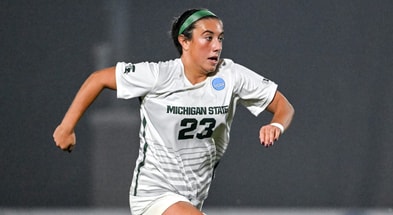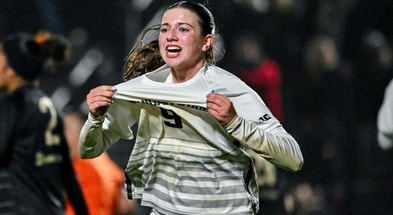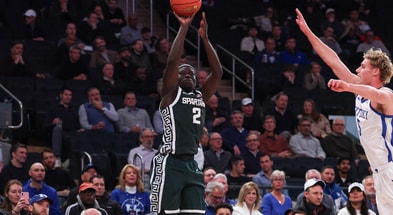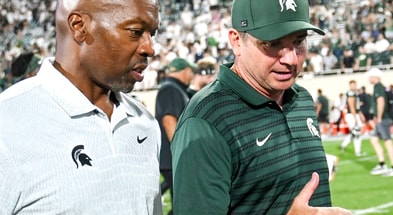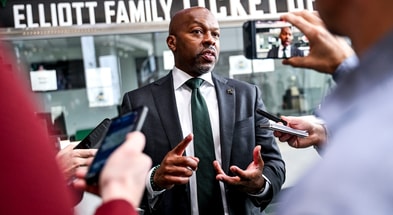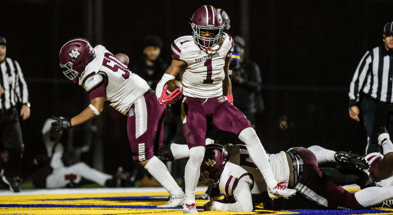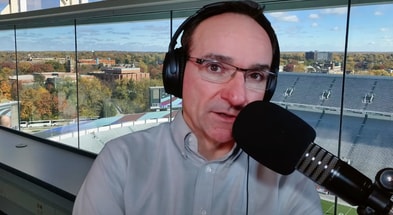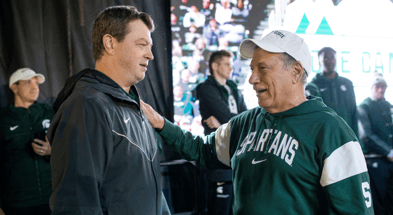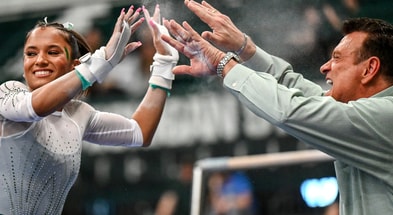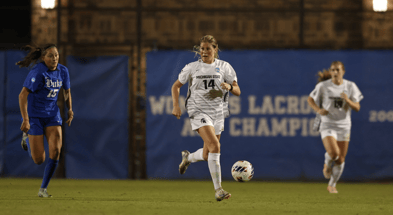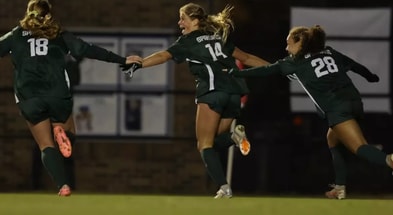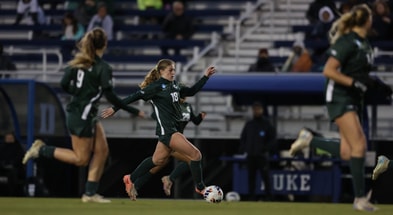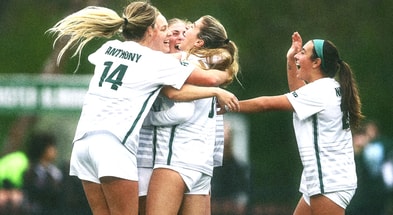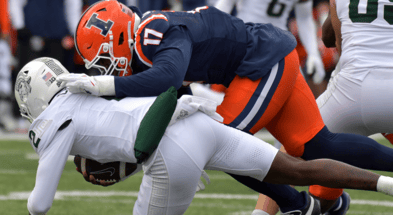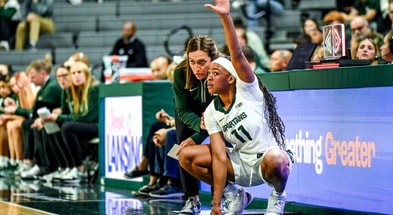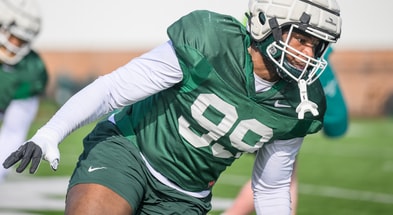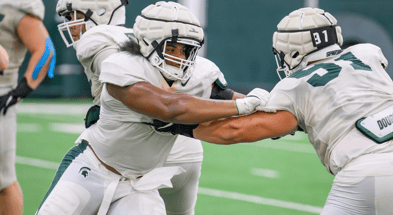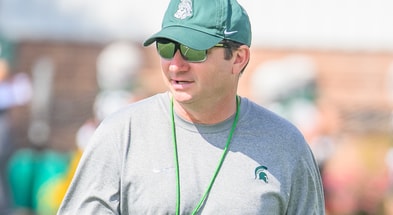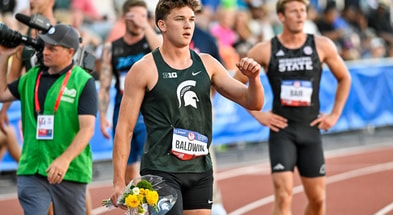Tom Izzo details his son, Steven's, experience of Monday night's tragic events
East Lansing, Mich. – The tragedies that occurred on Michigan State’s campus Monday night affected every member of the community in a different, deeply personal way. That includes Michigan State basketball coach Tom Izzo and his son, Steven.
Steven, a senior on the Michigan State men’s basketball team, drove to Michigan State’s Student Union around 8:30 p.m. to pick up his girlfriend from a class she had inside the building. Steven arrived a few minutes before the class got out. When he got there, police told him to leave the premises.
Moments earlier, a gunman opened fire in Berkey Hall, killing two Michigan State students. The gunman moved down the street and opened fire in the Union Building, killing one more student. Five other students were injured and remain at Sparrow Hospital in Lansing.
Steven followed the orders given to him by police and called his dad. His girlfriend, meanwhile, remained sheltered-in-place inside a bathroom in the Union Building.
“He came here (to the Breslin Center),” Izzo said. “And I had my radio show that night, or I probably would’ve been working. But he came here and I told him to barricade himself somewhere on campus. He called us from one of the boxes (suites) in Breslin. Thank God we had a couple of our GAs and video guys working. At 9:30 or so, he got a hold of them. They all came down to the weight room and the alumni locker room, and they stayed in there until a little after 1:00 at night.
“I kept saying, ‘I’m going to go pick him up.’ And they said, ‘No, you can’t do that.’ That was a little difficult.”
The Michigan State and East Lansing communities were under a shelter-in-place lockdown for hours, which made it impossible for Izzo to leave to pick up his son. But Izzo said he was grateful that everyone in the community followed protocol so well.
“He (Steven) did what probably 20,000 students on campus did,” Izzo said. “They listened to what they were supposed to do. That doesn’t happen with 18- to 22-year-olds. And they did it in an incredible way and probably, maybe even saved other lives, but helped other people. It was impressive the way a lot of people handled it.”
Izzo, his staff and his team have had meetings with mental health professionals in the days following the tragedy.
“It was fairly traumatizing for Steven,” Izzo said. “I thought he was OK and then yesterday he had some moments and some people really helped him out, so I was greatly appreciative of that.
Top 10
- 1Hot
Transfer Portal Predictions
Nakos calls his shot
- 2New
Nick Saban
Details coaching tree in CFP
- 3
Byrum Brown
USF QB heading to SEC
- 4
Austin Simmons
Ole Miss QB commits to SEC foe
- 5
Ashton Daniels
Auburn QB headed to ACC
Get the Daily On3 Newsletter in your inbox every morning
By clicking "Subscribe to Newsletter", I agree to On3's Privacy Notice, Terms, and use of my personal information described therein.
“The greatest thing I’ve learned is that everybody handles trauma differently. Some things might be water off a duck’s back that happened to you, and it seemed like a little to someone else and a big thing to you, and vice-versa. Of all the things I’ve learned, I appreciate our mental health people more than ever.”
Izzo wished that all of his players could have met inside the Breslin Center that night to be together, but with the shelter-in-place orders in effect, MSU Basketball Chief of Staff Garrett Briningstool instead communicated with each player to make sure they were safe.
“Garrett got a hold of everybody,” Izzo said. “I mean, he got a hold of managers, he got a hold of parents. And it was such a bombardment, we were all trying to figure out what was going on. When we found out that they had found who did it, I guess there was a breath of fresh air to say, ‘Wow, at least we know that he’s not running around campus still.’ But we couldn’t do anything, so the next morning, I had a meeting at my house because we weren’t allowed in (campus buildings). So I brought all of the players over to my house, we had a little something to eat. We talked about the issues, we talked about how we could help. We talked about how if you need professional help, we can do that.
“(Michigan State Athletic Director) Alan Haller did an unbelievable job of setting us up (with mental health professionals) early that morning. And the professional people here were phenomenal. So that made it easier for me. Because as they say, you know, there’s certain things that there’s no book. I’ve been through a lot of things here, but somehow, someway, they’re never quite the same. And so I have no book to tell me how to handle something like that, thank God. Maybe if there’s anything good that’s happened over the last five, six, seven years, is we’ve done a good job of getting professional people to help.”
Between Steven’s personal experience of Monday night’s tragedy and the way the Michigan State and East Lansing communities have been affected, this senseless act of violence was made horrifyingly personal for Izzo and countless other parents, students and community members.
“We never understand until it actually happens to us,” Izzo said. “It’s just the way we are. It’s not a bad thing, it’s a reality. It never hits home the same way. Did it hit home a little bit more when Steven called me? It did a little bit, but he wasn’t in the classroom, he wasn’t this and that. But I think he was a little more traumatized than I thought. Did it when I stood there last night (at the vigil) and talked to some of the people? I was at The Rock early and there were some people that I just couldn’t hold it in. I said, ‘Did you know somebody?’ And a couple said yes and a couple said no. And that was pretty powerful.”
